Melisse Shaban is a strategist and marketer of innovative retail concepts, primarily in the health and beauty industry. With more than 25 years of experience in consumer applications, she has demonstrated expertise in skin care, hair care, retail operations, and molding medical service concepts into viable consumer brands. She founded Virtue Labs, a biotech hair care company, when she was brought a piece of technology that she believed was a better solution to an existing problem.
What does “entrepreneurship” mean to you?
Melisse Shaban: To me, entrepreneurship is having a vision, something you see potential and opportunity in, or recognizing an unmet need or a better solution to a problem. Like an extreme sport, serial entrepreneurs love a challenge and embrace risk. It’s the rush of doing something that hasn’t been done in the way you think it can be done and living with the consequences. There’s no 9 to 5, there’s no “it’s just a job.” There’s no “it’s a living.” It’s a passion, almost a compulsion. It gets inside you. The only way to get it out is by exercising that opportunity.
How did your company come to be?
MS: I was brought a piece of technology that I believed was a better solution to an existing problem, and the interesting thing is that it was never meant for haircare at all. Dr. Luke Burnett, the chief scientist behind the development of the technology in Virtue, is a retired Colonel from the U.S. Army, and also a brilliant bio-tissue engineer. After two tours in Iraq, he made it his mission back home to find ways to speed healing and improve quality of life for wounded soldiers, and it was all based on his development of this newly patented form of a human keratin protein. Most “keratin” you’ve heard of on the market is a substance derived from animal sources (like sheep wool or feathers) and harshly treated and broken down into little more than amino acids. It’s no longer a whole, functional protein. Dr. Burnett’s breakthrough was the development of a fully functional, human-identical protein that the body could recognize and use to help with wound-healing. It’s fascinating stuff.
A young woman PhD candidate working in his lab had family members in the hair salon industry, and she asked if she could perform some experiments on the side using leftover material – she had heard of “keratin” in haircare and wanted to test and see if this new protein could also have benefits for hair. A few experiments later, they liked what they saw, but haircare was not their mission or their expertise. That’s when I was called in to take a look, really as a favor for a friend. Seeing the extraordinary results that this technology has on damaged hair is what made me want to share it with the world. And about four years after that, Virtue was born.
How has your business changed in response to the COVID-19 pandemic?
MS: There were certain logistics and supply challenges that put increased pressure on forecasting, but we acted early-on to get ahead of a lot of that. We’re very fortunate in that we were not reliant on a single channel of distribution. Virtue is an omni-channel business with a solid native business, as well as strong support through retail – both brick-and-mortar and online – and a network of salons. Our health and wellness positioning was already established, and so – not to be crass – we were poised for this new focus on self-care. And being small and nimble, we were able to repurpose a professional-use product into a DIY home-use application, which led to an unanticipated revenue stream. So as awful as the year has been emotionally and spiritually and as much as it has tested our resolve, our business has remained very strong.
Above all, we have become even more appreciative of our opportunity, and the fact that we still have an opportunity. We live with more mindfulness and appreciation for one another. We have always considered ourselves an empathetic organization, and Covid has only emphasized that.
What is your proudest and darkest moment so far?
MS: I think my proudest moment was the team’s ability to audible and find new creative ways to achieve our objectives during trying times, while also continuing to care about each other and not go insular. I’m proud of the resiliency of the brand and how much people seemed to need the brand and the messaging in this time.
The dark moments are when you let fear get the best of you – fear of failure and the effects it would have on the people who have put their trust in you and your vision, like your employees and investors. The fear can be crippling, but you can’t show it – you stick to your vision, you believe, and soldier on.
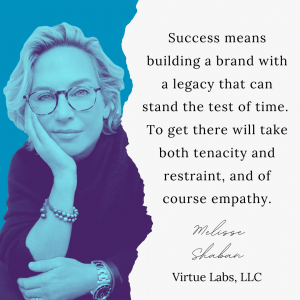 How is your company changing the landscape?
How is your company changing the landscape?
MS: Virtue is bringing real, transformative technology to haircare – that’s something you don’t normally see in this industry. There has been a lot of technological innovation in skincare over the past 20 years, but not in haircare. Having a real technology to repair damaged hair with clinically proven results is a major disruption to what is typically a run-of-the-mill commodity business. And we’re lucky to be in a time when having distribution across three different but accretive channels has proved to be an effective strategy and something that can be built on so that all boats rise.
What do you wish you knew when you started? Is there anything you would do differently?
MS: Oh, there are lots of things I wish I knew. Frankly, I wish I had known how long it would take, although if I had known, I might not have had the guts to do it! I wish I had known I would have to build an ingredient manufacturing facility. We create our key Alpha Keratin 60ku® ingredient through a patented and highly specialized extraction and purification process. We searched far and wide and nobody – not traditional cosmetic suppliers or pharma suppliers – could replicate the process. So to move forward, we had no choice but to set up a facility and make it ourselves. That was not something I ever expected, and it made the journey longer and made it cost more. But now I see it as a positive. We’re learning more about this ingredient every day in our lab in Winston-Salem, and how to work with it to formulate better products.
What advice/credo do you live by as you grow the business / what is your professional and personal mission statement?
MS: Authenticity and aspiration. At a fundamental level, it’s about living up to our name, Virtue. The technology that makes our products possible came from a higher purpose – healing wounded soldiers – and even though we are haircare, we always want to honor and live up to that. We only want to make and sell products that do what we say they do. And we only want to market them in an honest and positive way. We’re constantly asking ourselves, “Is it Virtuous?” It’s a standard we try to hold ourselves to.
Where do you find inspiration when faced with challenges?
MS: Honestly, I find inspiration in my team and their ability to work through problems and find solutions while also managing to remain good friends. It’s an amazing group of people, many of whom have been together a long time through previous companies. We lean on each other. We celebrate each other. We’re like a big, crazy family. I also find inspiration from women who have gone before me or are making their way in business, in politics – how hard we have to fight for what we believe in, and the energy we have to push through.
What does “success” look like for you? What do you think will help you achieve it?
MS: Success means building a brand with a legacy that can stand the test of time. To get there will take both tenacity and restraint, and of course empathy.
Has personal or professional “success” changed for you since the COVID-19 pandemic?
MS: I’ve always been a dreamer and I’ve always genuinely believed that where you are in any point in time is not where you’re going to be a year from now. Life is not linear. That concept has steeled me and keeps me strong. And I think I’ve become more aware or conscious of things – my sense of empathy has moved front and center. At least I hope so.
What’s it like to work alone or with your partners? What advice do you have for fellow entrepreneurs about building and leading teams?
MS: Surround yourself with quality people who share your values and your perspective on the bigger-picture things. Don’t feel like you have to be the smartest person in the room – or these days, on the Zoom. Hire good people, lead with the vision, and then know when to get out of their way. Be observant without being critical. Have fun. Laugh. Build something you can believe in and are proud to be a part of.
Many entrepreneurs continue to perfect their daily routines to support their work and greater vision; would you mind sharing your morning routine or a regular ritual that grounds your work each day? How has it changed in recent months?
MS: I’d like to say yoga, but I’m running a fast-growing startup, so I talk to my finance team first thing every morning. It’s literally how I start my day. Daily communication with team members, whether by phone or by Zoom, is key.
What keeps you motivated during this time?
MS: Knowing that we’re building a business and a brand that makes great products and really cares about women’s lives keeps me motivated. Knowing that in our own small way we’re making a difference in our customers’ everyday lives – the feedback we receive – it’s pretty special. And being a brand that has a voice – we don’t shy away from having an opinion or engaging on issues. We’re present.
What kind of an entrepreneur do you want to be known as, as in, what do you want your legacy to be?
MS: I’d like people to say that I was generous. And that I never, ever quit.
What is a quote or some words of wisdom that help get you through the tough days?
MS: Roxanne Quimby, a friend of mine and cofounder of Burt’s Bees, once told me that when you’re an entrepreneur, you just live to fight another day. It doesn’t always go your way, but you get up and give it your best. That has given me courage and helped me through a lot.
Who are the people who have mentored or influenced you in your life or career? How has their influence changed the trajectory of your entrepreneurial journey?
MS: You know, I have worked with and learned from some amazing entrepreneurs in my career, from Horst Rechelbacher at Aveda to Anita Roddick at The Body Shop. Horst hired me when I was about 30 to run Aveda, and a few years later I was hired by Anita to run The Body Shop in the Americas. These were bold, brilliant people who accomplished amazing things. You learn from them a different way of thinking. It’s not always 100% rational – it’s a mix of art and commerce. And there was also my Dad, who spent pretty much his entire career at Revlon. He got me excited about the consumer side of the beauty industry: how she relates to these products; what motivates her; what makes her tick. That’s something I think about every day.
Do you have someone you’d like to nominate to be profiled in our Faces of Entrepreneurship series? Please let us know by emailing media@thecenter.nasdaq.org.
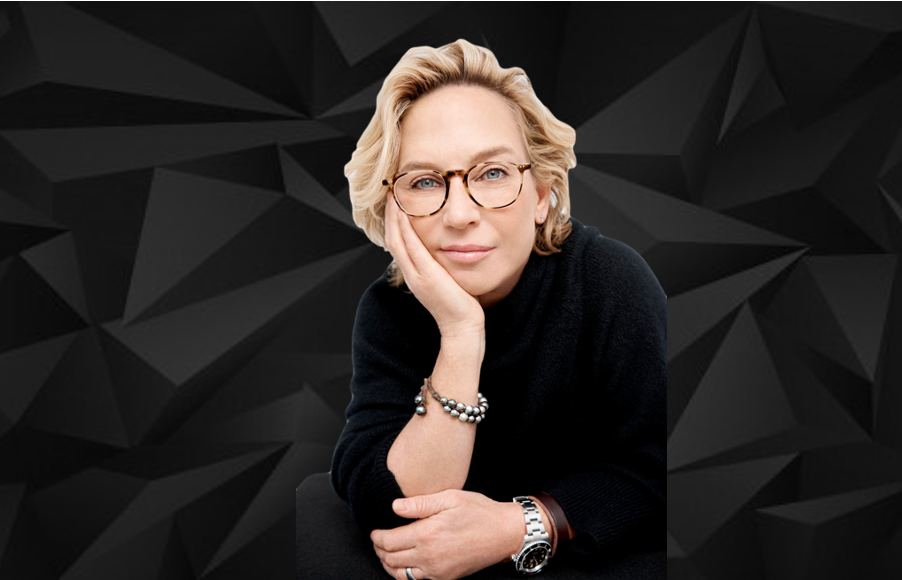
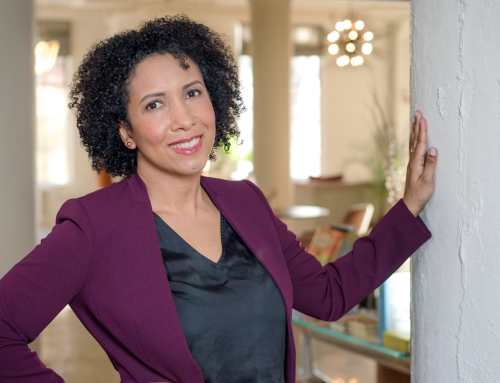
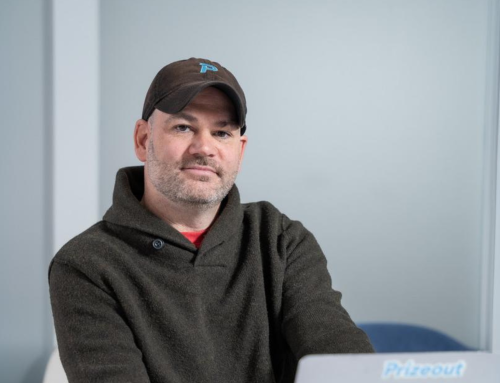
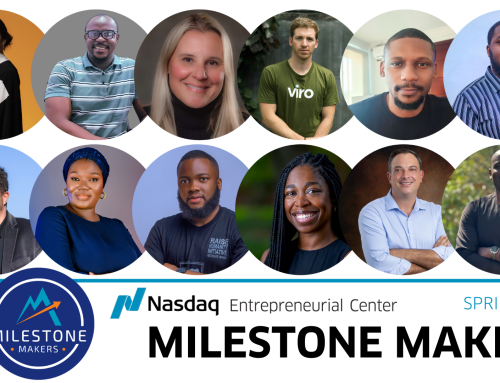
Invite a Friend
Close